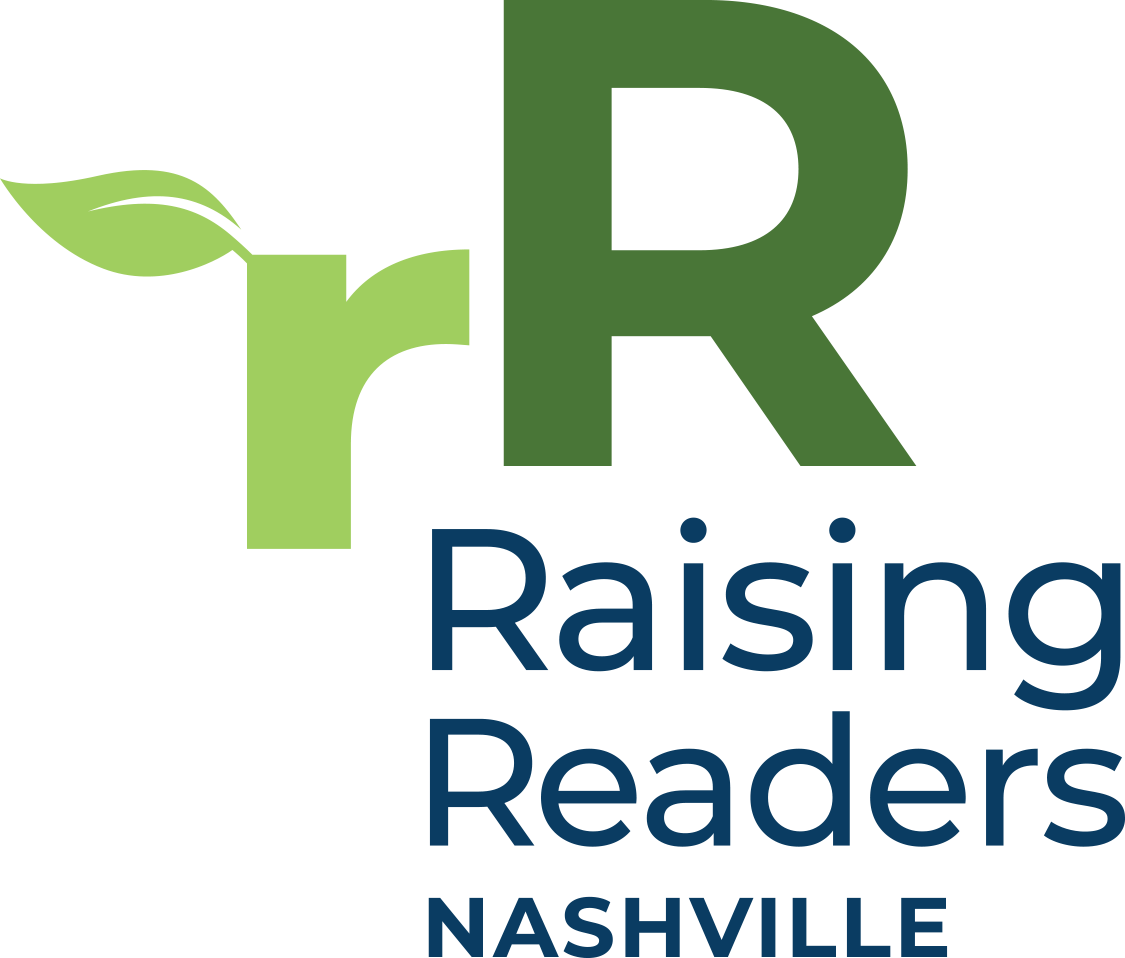
Supporting Research
The objectives and supporting strategies of Raising Readers Nashville are supported by extensive research, centered around four core domains. We invite you to explore the cited research below, organized by domain.
Ready to Read (0-5)
Literacy Skill Development
Educator Support
Family and Caregiver Engagement
Ready to Read (0-5)
Children are prepared to start learning to read (demonstrating pre-literacy skills) when they enter kindergarten.
High Quality Early Care and Education
Children who attend high quality early education programs and elementary schools are better prepared for success in school — academically, socially and emotionally. Economically disadvantaged three- and four-year-old children who participate in high-quality preschool programs have better school achievement, social skills and behavior than children who do not participate in a preschool experience or who are enrolled in a low-quality program. Children in higher quality programs have more advanced language and math skills, more advanced social skills, and warmer relationships with their teachers.
Healthy Birth Weight
Infants born weighing less than 2,500 grams (5.5 pounds) are at greater risk for physical and developmental problems than infants of normal weight. Children who are born at a low birth weight are at higher risk for long-term illness or disability and are more likely to be enrolled in special education classes or to repeat a grade.
Early Intervention
Without appropriate supports and services in the early years, children with special educational needs are less likely to be ready for school and are at higher risk for poor educational outcomes.
Social Emotional Health
Emotional health and social competence enable children to participate in learning and form good relationships with teachers and peers. Research is increasingly finding that self-regulation and social-emotional health are among the most critical building blocks for children’s learning.
Literacy Skill Development
Children make progress from kindergarten to third grade, developing the literacy skills they need to thrive.
Summer Learning
While middle-income students tend to hold steady or gain in learning over the summer, low-income students lose ground, likely because students from disadvantaged families are less able to access educational resources than their more advantaged peers during the summer months. The cumulative effects of year-after-year summer learning loss contributes to the achievement gaps between higher- and lower-income students. Learning opportunities and book access during the summer months can contribute to children’s short- and long-term outcomes.
Positive School Climate
Students show better academic and social-emotional outcomes when they learn in positive school climates, where they feel safe, connected and engaged.
Social and emotional learning in early childhood education and care: a public health perspective
Access via Drive here: SEL Review
Trauma-Informed Practices in Schools Across Two Decades: An Interdisciplinary Review of Research
Regular School Attendance
Children, particularly those with multiple risk factors, benefit from regular attendance in child care, where they establish good attendance and learning habits. Consistent school attendance in the early grades helps boost children’s academic learning, achievement, and motivation. Early chronic absenteeism is associated with lower academic achievement, truancy in middle school, school dropout, delinquency, and substance abuse. The educational experience of all children is impacted when teachers must divert their attention to meet the needs of chronically absent children when they are in school.
Promotion to Next Grade
A large body of research suggests that students retained in the early years achieve at lower levels, are more likely to drop out of high school, and have worse social-emotional outcomes than similar students who are promoted.
Family and Caregiver Engagement
Families and caregivers understand the importance of early literacy, have skills and resources to support their child, and are engaged in community efforts around early literacy.
Supports for Families
Both formal and informal services and supports that help families obtain basic necessities and that enhance protective factors all contribute to children’s overall well-being and increase families’ abilities to deal with a range of issues.
Association of Maternal Social Relationships with Cognitive Development in Early Childhood
Pathways from Mothers’ Early Social Support to Children’s Language Development at Age 3
Skilled and Knowledgeable Parents
Parents with greater knowledge of child development and parenting skills better support their children’s early learning and development. Skilled and knowledgeable parents are better able to expose their children to activities and educational opportunities that can help them succeed.
Impact of the COVID-19 Pandemic on Parent, Child, and Family Functioning
The role of parent educational attainment in parenting and children's development
Positive Parent/Child Interactions
The opportunity to form secure attachments with sensitive, nurturing caregivers is critical to children’s cognitive and social-emotional growth. The lack of a warm, positive relationship with parents/caregivers increases the risk that children develop major behavioral and emotional problems, including substance abuse, antisocial behavior, and juvenile delinquency. Talking to children plays a direct role in building their vocabularies and strengthening their early literacy skills. A “word gap” between children from low-income and middle-income families predicts gaps in academic achievement.
Reading with Children
Reading to children promotes a child’s cognitive and emotional growth and strengthens parent-child bonding. A positive correlation exists between regular parental book reading and young children’s language development, early reading achievement, and school readiness.
Safe at Home
Abuse, neglect, and maltreatment in childhood can negatively impact cognitive, language, behavioral and psychological functioning and development. Instances of substantiated child abuse or neglect are associated with decreased aptitudes in vocabulary, reading ability, perceptual reasoning, verbal and nonverbal abilities, and language proficiency in adolescence and middle- to late- adulthood. Children who experience abuse or neglect are particularly at risk of having executive dysfunction and lower levels of nonverbal reasoning later in life.




